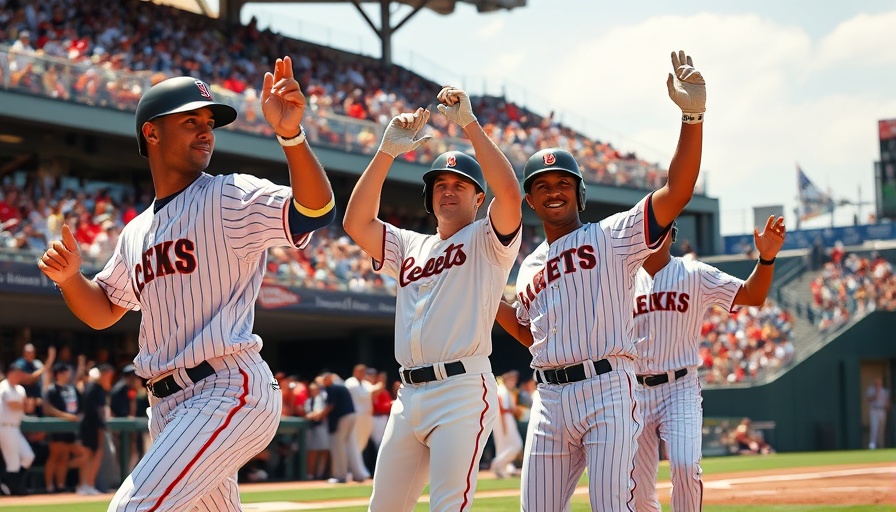
The Conversation: Fans and Players Under Pressure
In an era where sports are more than just games—where they intersect with social issues and mental health—this incident showcases how the behavior of fans can dramatically impact players. Jarren Duran, an All-Star left fielder for the Boston Red Sox, faced a troubling moment during a recent match in Cleveland against the Guardians.
After hitting a fly out in the seventh inning during a substantial win (13-3) for the Red Sox, Duran was the target of inappropriate taunts from a fan seated near the Red Sox dugout. It’s not an isolated incident; in fact, many athletes have recounted stories of being provoked in similar scenarios. The mental fortitude required to perform under such duress is testifying to the pressure players face, both on and off the field.
Understanding the Impact of Verbal Abuse
This exchange didn’t escalate into violence, but it raises critical questions about fans’ responsibilities and the emotional climate of modern sports. Duran, who has openly shared his past struggles with mental health and attempted suicide, must have felt acutely the weight of such harassing comments. The interplay of mental health and professional sports is increasingly in focus, with more players speaking out about their battles.
In major league sports, where machismo often reigns, revealing vulnerabilities can be seen as a weakness. Yet, as Duran’s story illustrates, recognizing and addressing mental health is crucial—not just for athletes but for their fans. Professional leagues need to take a page from Duran’s book, encouraging dialogue around mental well-being while enacting stricter policies on harassment during games.
Lessons from Duran's Experience
What are the lessons that fans can learn from Duran's experience? First, recognizing their influence on the game and the players is vital. A strong connection exists between player performance and fan behavior, which can have ripple effects far beyond the stadium. As games transform into significant cultural events, the emotional responsibility of attendees becomes more paramount.
Moreover, the recent shift towards understanding mental health invites fans to reflect on how their actions can affect players' endurance and morale. Engaging with the game in a positive way, creating an atmosphere of support, could lead to a fan culture that uplifts rather than undermines players.
Architects of a Supportive Fan Environment
Red Sox teammates rallied around Duran following the incident, demonstrating the power of solidarity in sports. Being part of a supportive environment can make all the difference for an athlete, allowing them to navigate through adversities. The incident has sparked conversations on the oversight that teams and leagues hold in guiding fan interactions. Organizations can enforce policies preventing harassment and fostering understanding. Fans can be champions of positivity instead of negativity, thereby aligning National and Major League policies with player well-being, while preserving the lively essence of sports.
Looking Forward: The Road Ahead
As discussions about mental health take a central role in sports, it presents a golden opportunity for change. Will teams utilize this moment to advocate for compassionate fan engagement? Moving forward, let’s encourage a sporting landscape where interactions contribute to a positive atmosphere. Equipped with empathy, both players and fans can redefine the experience that transcends scoreboards and statistics.
Call to Action: Be a Part of Positive Change
Every player has a story, and it’s time for us, as fans, to ensure that these narratives can be uplifting rather than burdening. Challenge yourself to show kindness during games—consider how your words might affect a player’s day. If we all commit to creating a more supportive environment, we can champion sportsmanship that extends beyond the field. Let’s rally around athletes like Duran who highlight the importance of mental health in sports—after all, it’s the strength of our community that defines us.
 Add Row
Add Row  Add
Add 




Write A Comment